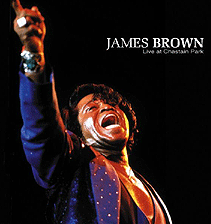For the record, I never thought that Damon Wayans was that funny. Yes,
In Living Color was a good show but it was an ensemble cast, it was not solely dependent on Damon Wayans. On the real---if the Wayans family had waited for me to support their subsequent efforts they would be mighty hungry and definitely homeless.
Now Damon Wayans, the same person who tried to copyright the word nigger is defending Don Imus. People of intellect and good faith can disagree, but Damon Wayans, just like D.L. Hughley before him are trying to defend an
ad hominem attack on some female college students as defensible humor. Moreover, Wayans is placing himself as the spokesmen for all Black Americans by saying that Black folks thought that the comment was funny---that it is culturally based. I guess that Wayans simply writes off every Black person who does not agree with him as "bourgie."
This Black woman certainly did not think that Imus's statement was funny, nor did I think that D.L. Hughley's comment on David Letterman was funny or Damon Wayans' latest addition. I have already expressed my views on the Imus affair in the essay, "Hip Hop's (Still) Invisible Women," located at
http://www.AlterNet.org/story/51933 so I am not going to re-hash all of that. The bottom line is that if slamming some college athletes for not being their idea of glamour girls is the only way that D.L. Hughley and Damon Wayans think that they can get a laugh, it is no wonder that both of their careers have taken a nose dive.
I could care less about Imus or his defenders, because I will not respond as a victim to actions or words of boars and bigots. However I do know that racist and sexist speech should not be used wantonly on our public airwaves.
Read what Wayans said below---I don't think that Cameron Turner agrees with him either:
TURNER'S TWO CENTS:
Wayans disgraces himself by defending Imus"When he called them nappy headed hoes I was like, 'Wow! He's right!" -- Damon Wayans (on The View, 11-7-07)
*Damon Wayans has, evidently, lost his mind. The veteran comedian/actor/writer actually went on national TV (ABC's The View) last week and said that Don Imus was "right" when he called the members of the Rutgers Women's Basketball team "nappy headed hoes."
The former star of My Wife and Kids said he wasn't offended by Imus' comment because, "black people can say that about each other." Wayans grinned and giggled in solitude as The View panelists and audience responded with shocked, nervous laughter, head-shaking and groans of disapproval.
As Sherri Shepherd struggled to get a word in over the uncomfortable cacophony ("Damon! You know what, Damon?"), Joy Behar challenged Wayans directly: "These women are not hoes," she said, "They're highly respected sports (stars)."
Then, as if his original statement wasn't crazy enough, Wayans clarified and expanded position by saying something truly ignorant: "Black people at home are laughing right now. White people are going, 'That's not right!' (But) it's all cultural." No it isn't.
First of all, Damon, I guarantee you that a whole lot of black folks - the majority, in fact -- were not laughing at your pro-Imus statement. Just like we didn't laugh when Imus opened his mouth and ignited this whole controversy.
Under certain circumstances black people who are good friends agree to play around with insults (including the wretched n-word and b-word). But that has to do with individual relationships, not ethnicity. There is no across-the-board acceptance of crude, demeaning language within black culture. I, as a black man, can not just walk up to a sister, call her by the h-word (even in jest) and think she'll be okay with that. Then again, it would never cross my mind to do that because, like most African-Americans, I have home training.
Even if Damon Wayans' false premise was true, it wouldn't excuse Imus. If black folks give one another conditional permission to use inflammatory language that permission stops with us. Sorry, but white folks don't get to do it. Especially a race-bating instigator like Don Imus, who takes pride in behaving like a donkey's rectum.
Imus was not "right." He was malicious, racist and sexist. Damon Wayans disgraced himself and undermined us by defending him. Thanks for listening.
I'm Cameron Turner and that's my two cents. I'd love to hear yours. Holla back at
TurnersTwoCents@aol.com. -- "Think! It Ain't Illegal yet!"
 " Ain't that a Groove": The Genius of James Brown
" Ain't that a Groove": The Genius of James Brown